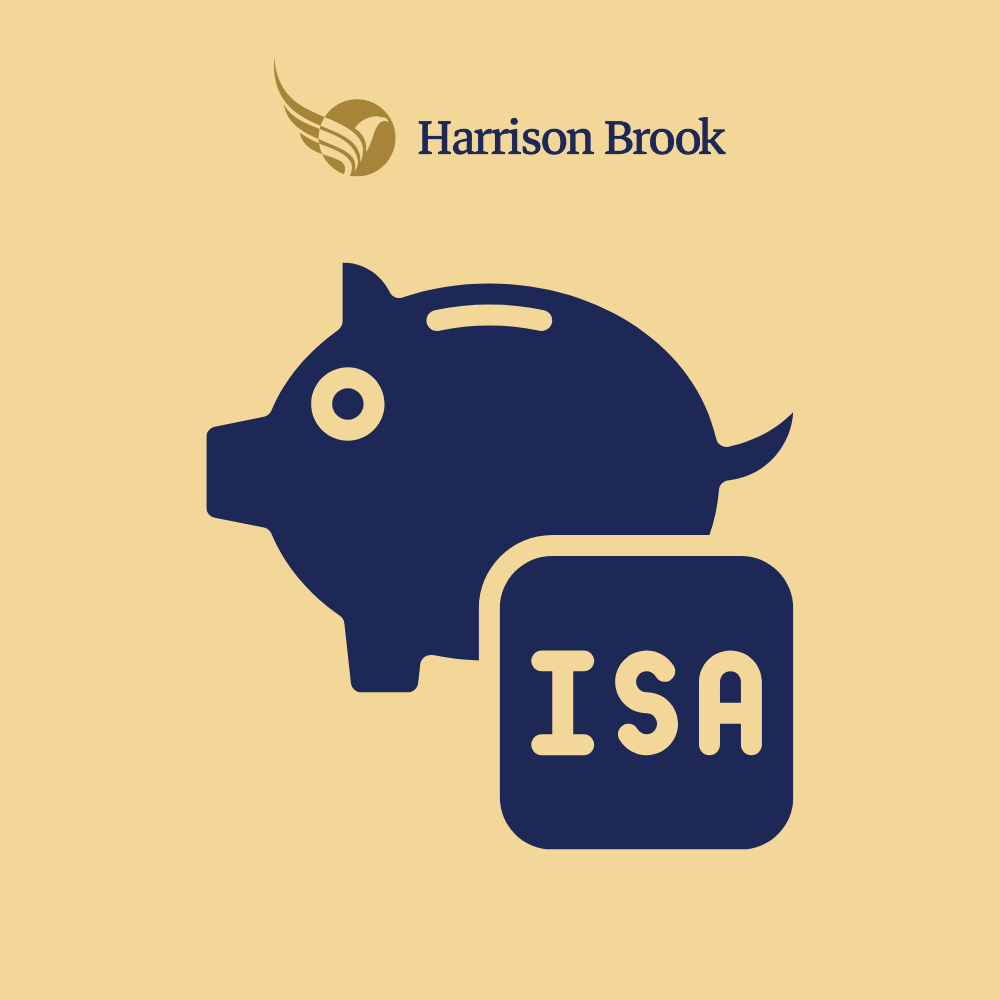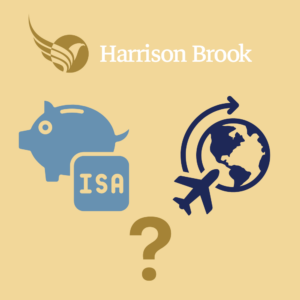
If you are a UK expat living abroad and wondering what to do with your Stocks and Shares ISA, you are not alone. With rules that seem to shift depending on where you live and which provider you use, it is no surprise that many British expats feel unsure about whether they can keep or open an ISA while overseas.
The Brexit transition period has brought significant updates to tax reliefs and investment eligibility, particularly affecting company shares and various investment schemes. These changes are crucial for investors managing their portfolios.
This guide explores your options in 2025, including how residency affects your ISA status, what happens if you move abroad, and alternative investment routes. Whether you already have a Stocks and Shares ISA or are planning to become a non-resident, read on to learn how to navigate your investment choices as an expat.
Introduction to Individual Savings Accounts
Individual Savings Accounts (ISAs) are a type of savings account that allows UK residents to save or invest money in a tax-efficient way. The main benefit of ISAs is that the interest earned is tax-free, allowing you to keep more of your savings. There are different types of ISAs, including cash ISAs and investment ISAs, such as stocks and shares ISAs. Cash ISAs are straightforward savings accounts, while stocks and shares ISAs allow you to invest in a range of assets like shares, bonds, and funds. ISAs are a great way to save for short-term goals, such as a holiday or a down payment on a house, and are also a good option for long-term savings, as the interest earned can grow over time.
Can You Have a Stocks and Shares ISA If You Live Abroad?
The short answer is no, you cannot open a new individual savings account (ISA) once you become a non-UK tax resident. However, if you already have one, you can usually keep it open. What you cannot do is contribute new funds into the ISA while living abroad.
Most ISA providers will freeze your ability to pay in if you notify them that you are no longer a UK resident. But your investments can remain in the account and continue to grow tax free under UK rules. You can also sell and rebuy investments within the ISA, switch providers and withdraw funds at any time without tax consequences in the UK.
Here at Harrison Brook, we are able to manage UK ISA’s while your living abroad, and protect the ISA status if you are intending to return post working or living abroad.
It is important to notify HMRC about any changes in your residency status to ensure compliance with tax obligations.
Eligibility and Application
To be eligible for an ISA, you must be a UK resident aged 18 or over. Crown employees and members of the armed forces based overseas, along with their spouses, can also open an ISA. You can apply for an ISA through a bank, building society, or investment provider. It’s essential to choose an ISA provider that meets your needs and offers a range of investment options, such as collective investment schemes, exchange-traded funds, and investment trusts. This ensures that you have a variety of choices to diversify your investments and potentially enhance your returns.
Choosing an ISA Provider
When choosing an ISA provider, consider factors such as fees, investment options, and customer service. Look for a provider that offers a range of investments, including shares, bonds, and funds, and has a good track record of performance. It’s also essential to check if the provider is regulated by the Financial Conduct Authority (FCA) and is a member of the UK’s Financial Services Compensation Scheme (FSCS). These regulatory bodies ensure that your investments are protected and that the provider adheres to high standards of conduct. Additionally, consider the provider’s reputation, customer reviews, and the level of investment advice offered to ensure you receive the support you need.
Can I Still Use a Stocks and Shares ISA If I Am Not a UK Resident?
To contribute to a Stocks and Shares ISA, you must be a UK resident for tax purposes. There are some exceptions for Crown employees and their spouses, but for the vast majority of expats, you lose the ability to contribute once you leave the UK. Additionally, adding new funds to an existing ISA is not permitted for non-residents, but there are alternative savings accounts and investment vehicles available in European countries to help diversify investments and grow wealth. Investments in an ISA are not liable for UK income tax, emphasizing the tax efficiency of these financial products.
This does not mean your ISA disappears. It remains intact, and you can continue to manage the funds already invested. You are also free to return to the UK in the future and resume contributions once you regain tax residency.
What Happens to My ISA If I Move Abroad?
If you are moving abroad, inform your ISA provider promptly. While your account stays open, you will no longer be able to add money to it. The ISA will retain its tax-free status in the UK, though it may be taxed in your new country of residence. Additionally, you might face taxes on capital gains or dividends in your new country, so it’s crucial to understand the local tax laws.
Be aware that some providers, like Vanguard or Hargreaves Lansdown, may restrict access or even close your account if you are no longer UK-based. Always check your provider’s terms and consider transferring to a more expat-friendly platform before you relocate.
Can Expats Invest in the UK If They Live Abroad?
Yes, expats can still invest in the UK, including in UK equities, funds, bonds, and investment trusts. However, you must do this outside the ISA wrapper unless you meet the UK residency criteria. Many expats use General Investment Accounts (GIAs), Offshore Bonds, or International SIPPs as alternatives. Shares must be listed on a recognised stock exchange to be eligible for inclusion in an ISA.
It is also essential to understand the tax treatment of your investments both in the UK and your country of residence. While an ISA is tax free in the UK, your local tax authority might not recognise this status.
Tax Implications
ISAs have a tax-free status, meaning that you won’t have to pay UK income tax on the interest earned. However, tax rules can change, and the value of tax relief depends on your individual circumstances. If you’re a non-UK resident, you may be subject to local tax authorities’ rules and regulations. It’s essential to consider the tax implications of an ISA and seek investment advice from a qualified professional if needed. You should also be aware that the tax year runs from 6 April to 5 April the following year, which affects your ISA allowance and planning.
ISA Allowance and Limits
The ISA allowance is the amount you can pay into your ISAs each tax year without paying tax on the money they make. The government sets the maximum ISA allowance, which is £20,000 for the 2023-2024 tax year. You can use your allowance to pay up to £20,000 into an ISA, and you can split your allowance across different ISAs, as long as you don’t pay in more than £20,000 across them all in the tax year. Any money you pay into your ISAs will count towards your overall annual ISA allowance. If you don’t use your allowance, you’ll miss out on protecting any interest or returns from tax that tax year. Any allowance you don’t use will be lost because it won’t carry forward into another tax year.
ISA Alternatives for UK Expats
For those unable to contribute to a UK ISA while abroad, here are a few alternatives worth considering:
- Offshore Investment Bonds – Tax efficient and recognised in many countries with deferred taxation benefits.
- International SIPPs – Especially suitable for expats with UK pensions.
- GIAs (General Investment Accounts) – Flexible but subject to local taxation.
- Peer to Peer Loans – Can be included within an innovative finance ISA, offering a unique investment option.
ISA Allowance and Limits
The annual ISA allowance is currently set at £20,000. This limit applies across all types of ISAs, including cash ISAs, stocks and shares ISAs, and innovative finance ISAs.
Interest earned on cash ISAs is exempt from the Personal Savings Allowance (PSA), allowing users to accumulate tax-free returns without impacting their tax allowances on other savings accounts.
What Happens to Your UK Pension or Bank Account If You Move Abroad?
You can keep your UK pension and bank accounts when you become a non-resident, but like with ISAs, the functionality may be limited. Many UK banks have stopped serving EU residents, and investment platforms may restrict accounts unless you maintain a UK address. Additionally, you will need a UK account to facilitate transactions and savings, as payments can only be processed through such accounts in pounds sterling.
Make sure you inform both HMRC and your providers when you change your residency. This will help prevent any regulatory breaches and ensure your investments stay compliant with your new tax obligations. It is also crucial to notify HM Revenue about changes in residency to avoid any issues with tax compliance.
FAQs About Stocks and Shares ISA for Expats
Can I keep my Vanguard ISA if I move abroad? Most likely not. Vanguard generally restricts accounts to UK residents only. Always check directly with the provider before moving.
Is there an ISA equivalent in Spain? Spain does not have a direct ISA equivalent. However, you may be able to use Spanish-compliant investment bonds or insurance wrappers for tax-efficient investing.
Can I open a new ISA if I return to the UK? Yes. Once you become a UK tax resident again, you can open and contribute to a new ISA.
Can I withdraw from my ISA while living abroad? Yes. You can withdraw money from your ISA at any time. Withdrawals are not taxed in the UK, but they may be taxable in your new country.
What happens to my investments inside the ISA? They remain protected under UK ISA rules and grow tax free in the UK. But tax treatment abroad may vary.
Can I invest in UK bonds or shares if I live overseas? Yes, but not within an ISA unless you are a UK resident. You will need to invest through other accounts like GIAs.
What investments cannot be held in an ISA? Certain high-risk or unregulated investments are not permitted in an ISA, such as unlisted shares or cryptoassets.
Can you provide an example of how an expat can manage their ISA? For example, if you move abroad and become a non-UK resident, you can no longer contribute to your ISA. However, your existing investments can remain in the ISA and continue to grow tax-free in the UK. You can still withdraw funds, but be aware of the tax implications in your new country of residence.
What are the benefits and limitations of a Cash ISA for expats? A Cash ISA allows you to grow your cash savings with tax-free interest in the UK. However, if you become a non-UK resident, you cannot make new contributions to your Cash ISA. The tax-free status of the interest may also not apply in your new country of residence, so it’s important to check the local tax regulations.
Final Thoughts
Although Stocks and Shares ISAs are designed for UK tax residents, expats are not entirely excluded. You can maintain your ISA, manage your funds, and still invest in the UK, even if you cannot contribute further. With smart planning and the right advice, your wealth can continue to grow efficiently while you live abroad. Planning for the new tax year and putting money into ISAs can help maximize your tax benefits.
Working with an experienced international adviser ensures you remain compliant and make the most of tax-friendly investment vehicles suited to your situation. At Harrison Brook, we specialise in helping British expats worldwide find the best solutions for their investment and retirement goals.
Ready to Review Your ISA or Explore Better Alternatives?
Get a free, no-obligation consultation with a Harrison Brook adviser. We help UK expats optimise their investment strategy wherever life takes them. Understanding market conditions is crucial when reviewing ISAs to ensure optimal returns. Additionally, expats can explore opportunities available in different markets to diversify their investment portfolio.



